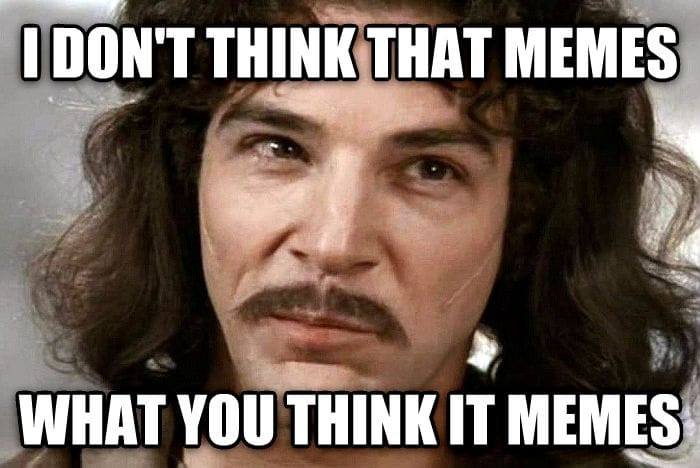
🦾 Keep calm, AI is not a bubble
The stock market went down, panic arose and the pessimists proclaimed in panic: The AI bubble is bursting. That is nonsense.
Share this story!
At the beginning of August, the stock market fell for three whole days. AI-heavy tech companies in particular dropped. Help, AI was just a bubble! Pessimists proclaimed in panic: That's what we said!

A group of writers started writing their "analyses." Unfortunately for them, the stock market went up again and after just over one week was back to the same level as before the "crash". Such details, of course, shouldn't get in the way of a little pessimism.

"Does this mean that the AI revolution - touted as the solution to problems as diverse as curing cancer and saving the environment - is collapsing around us?", asks Forbes.
The short answer is no. The slightly longer answer is no, no, no.
Generative AI unleashes human potential
To understand this, we must drill down to the fundamentals and absolutely not stare blindly at stock prices. Generative AI is a massive step forward, actually for all of humanity. The crucial thing is that we can now control machines with our natural language and through that get them to do things we previously couldn't do at all, or which took thousands of hours to learn.
A month after ChatGPT was released, I wrote that "AI unleashes a massive wave of creativity":
"Artificial intelligence will unleash massive untapped creativity from non-professionals, by giving them the tools to create things that were previously only available to professionals."
We have seen several studies showing significantly increased productivity and quality when using AI to perform work tasks. ChatGPT is the steam engine of cognition.
Centaurs crush the competition
So why hasn't this affected society more and created new Googles, Facebooks and Amazons? Because we haven't even had ChatGPT for two years. It was released at the end of November 2022. If we compare with the internet, I think we are now somewhere around 1994-95. Very early. We've barely gotten started. Big changes take time.
First, people have to discover the new thing, start using it, understand its disadvantages and advantages, find areas of use. Because we are so early and generative AI is a new phenomenon, there isn't much knowledge to learn from. You have to discover a lot yourself, which is fun but takes time.
Becoming a centaur - a really skilled user of AI - requires a dedicated effort over a long time. I am among those in the world who use generative AI the most, and I feel like I've only scratched the surface.
Then the workplace has to allow it, questions about regulations and security need to be sorted out, courses need to be arranged and everything has to fit into budgets and other priorities. Such things take time. Years. To get started, many need to see others' results first.
Do you think many CEOs think "we should probably skip that AI thing" when they see this from Amazon?
"The average time to upgrade an application to Java 17 plummeted from what’s typically 50 developer-days to just a few hours. We estimate this has saved us the equivalent of 4,500 developer-years of work (yes, that number is crazy but, real)."
I myself have created an AI writer, WALL-Y, that writes the news on average 70 percent faster. But it has been shaky in Swedish. My 30 percent of the work has gone to quite extensive editing. Then suddenly it got better and now I only need to do light editing. The time saving is now somewhere around 85-90 percent.
Accelerating progress
The idea that the technological development itself is going slowly and slowing down is laughable. Ethan Mollick writes about "change blindness" and shows how quickly development is progressing in images, music, sound and text.
This was the best images one could create less than two years ago, with the prompt "nursing school leader":

Now the result is like this:

The image can also be animated:

New capabilities are constantly emerging. Like AI being able to speak completely realistically or understand images. Now even boomers can understand memes.

"This is a meme that plays with words. The image is from the movie The Princess Bride, where the character Inigo Montoya says a famous line: "You keep using that word. I do not think it means what you think it means." The meme uses a play on the words "means" and "memes" to create humor, by replacing the word "means" with "memes," which creates a comic effect."
Bigger than the internet
When human potential and creativity are unleashed, when it becomes easier to spread ideas and understand knowledge, new, better ideas are created. These ideas are what drive humanity forward. AI is a tool that helps us do just that. It will lead to massive changes. Those who understand this early have an advantage. Those who understand the foundation of the change have an advantage. Those who don't panic because of the stock market have an advantage.
I believe that AI will lead to a bigger change in society than the internet. Yesterday it was science fiction. Today it's everyday life. Tomorrow it's indispensable. Such a change is not a bubble, but can of course create unrealistic expectations in the short term. In the long term, expectations are still too small.
The dotcom bubble was a financial bubble where high expectations of quick returns were created and then crashed hard. But the internet wasn't a bubble. It became at least as big as the biggest visionaries claimed. In the long run, the economic returns also lived up to expectations. Google is today worth over 2000 billion dollars, Facebook 1300 billion dollars and Amazon 1800 billion dollars.
During last week's meeting with the AI commission, a slide was put up with the following text:
"We needed an entire dotcom bubble to even begin to understand how the internet could be used."
We will need a proper AI bubble to even begin to understand how AI can be used.
Mathias Sundin
The Angry Optimist
By becoming a premium supporter, you help in the creation and sharing of fact-based optimistic news all over the world.


